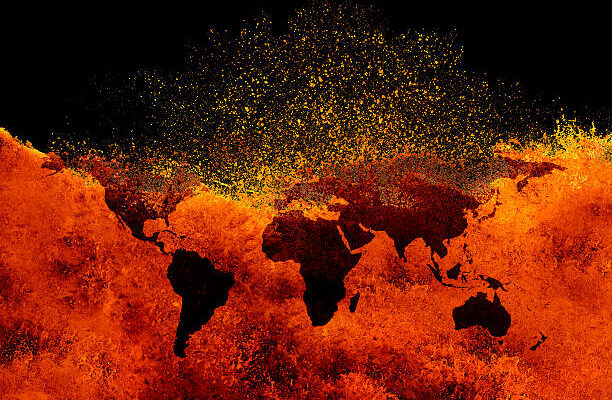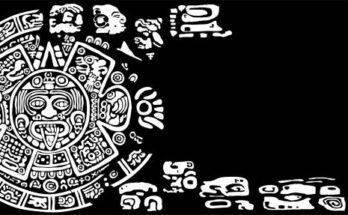The question of whether religion will ever come to an end is a complex and multifaceted one that has intrigued thinkers, scholars, and theologians throughout history. As societies evolve, scientific advancements occur, and cultural landscapes transform, the role of religion in people’s lives may change. In this article, we will explore various perspectives on the potential future or end of religion and consider the factors that may influence its trajectory.
The Evolution of Religion
To contemplate the future of religion, it is essential to understand its historical evolution. Religion has been a fundamental aspect of human civilization, providing individuals with a framework for understanding the world, establishing moral guidelines, and fostering a sense of community. From ancient polytheistic beliefs to monotheistic religions like Christianity, Islam, and Judaism, religious systems have adapted to meet the needs and values of different societies.
As societies have progressed, scientific discoveries and technological advancements have challenged traditional religious narratives. The rise of the scientific method and empirical inquiry has led to a greater emphasis on evidence-based reasoning, sometimes conflicting with religious doctrines that rely on faith. This tension between science and religion has prompted some to predict that religion may decline as scientific understanding expands.
The Rise of Secularism
 (Photo from iStock)
(Photo from iStock)
One significant trend in recent history is the rise of secularism, characterized by the separation of religious institutions from the affairs of the state and the increasing emphasis on secular values. Countries in the developed world have witnessed a decline in religious adherence, with a growing number of individuals identifying as secular, agnostic, or atheist. This shift has been attributed to factors such as increased education, access to information, and a focus on individual autonomy.
Secular societies often prioritize reason, evidence, and personal freedom over religious dogma. As people gain access to diverse perspectives and information through the internet and global communication, traditional religious teachings may be scrutinized and questioned. This has led some observers to speculate that the global trend toward secularism could eventually contribute to the decline of organized religion.
The Influence of Science and Technology
Advancements in science and technology have played a pivotal role in shaping the modern world, challenging religious explanations of natural phenomena and offering alternative perspectives on existence. The exploration of outer space, breakthroughs in genetics, and advancements in artificial intelligence have expanded our understanding of the universe, sometimes contradicting religious cosmologies.
Additionally, medical and technological innovations have contributed to improvements in quality of life, leading some to argue that as societies become more prosperous and less dependent on religious institutions for support, the need for religious beliefs may diminish. However, it is crucial to note that science and religion can coexist, as many individuals find ways to reconcile their spiritual beliefs with scientific understanding.
Changing Cultural Dynamics
Cultural dynamics also play a crucial role in shaping the future of religion. Globalization has facilitated the exchange of ideas and cultures, fostering a more interconnected world. Alternatively, this exposure could lead to the blending or syncretism of religious traditions, creating hybrid belief systems that transcend traditional boundaries.
On the other hand, some argue that cultural conflicts and geopolitical tensions rooted in religious differences may intensify. Instances of religious extremism and fundamentalism could fuel resistance to secularism and reinforce the importance of religious identity. Thus, the future of religion may involve a complex interplay of cultural integration and cultural clashes.
The Human Need for Meaning
 (Photo from iStock)
(Photo from iStock)
One of the enduring aspects of religion is its ability to provide individuals with a sense of meaning, purpose, and belonging. Throughout history, religion has offered answers to existential questions and a framework for understanding the human experience. As people grapple with the complexities of life, death, and morality, the appeal of religious narratives may persist.
While secular philosophies and humanism can provide alternative sources of meaning and morality. They may not fully replace the deeply ingrained human need for transcendent experiences. And a connection to something greater than oneself. As such, even in a more secular world. Individuals may seek spiritual fulfilment through alternative avenues, such as mindfulness practices. Ethical frameworks, or nature-based spirituality.
Adaptation and Reform within Religious Institutions
Rather than facing an imminent demise, some argue that religion will undergo adaptation. And reform to meet the evolving needs of society. Religious institutions may reconsider their teachings, doctrines, and practices to align with contemporary values and scientific knowledge. This adaptive approach could help religious traditions remain relevant and appealing to new generations.
Interfaith dialogue and cooperation may also play a crucial role in fostering understanding among diverse religious communities. Shared values and common goals could lead to the development of a more inclusive. And pluralistic religious landscape that accommodates a variety of beliefs while promoting mutual respect and cooperation.
Conclusion
The question of whether religion will ever end is complex and influenced by a myriad of factors, including scientific advancements. Cultural dynamics, and the evolving needs of individuals and societies. While some predict a decline in organized religion as secularism rises and science progresses. Others argue that religion will adapt and endure in various forms.
The future of religion may involve a delicate balance between tradition and innovation, spirituality and reason. As societies continue to evolve. It is essential to approach the question with an open mind, recognizing the diverse ways in which individuals find meaning. And purpose in their lives. Whether religion persists, transforms, or gives way to new belief systems. The human quest for understanding and connection. Will undoubtedly continue to shape the spiritual landscape of the future.
In conclusion, the future of religion is a dynamic interplay of scientific progress. Cultural shifts, and the innate human need for meaning. While some anticipate a decline in organized religion, others foresee adaptation and reform within religious institutions. The complex and multifaceted nature of this question. Suggests that the spiritual landscape of the future will likely be shaped by a diverse range of influences,. Emphasizing the ongoing quest for understanding and connection and end of religion.




